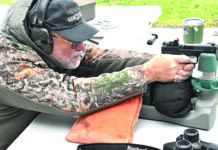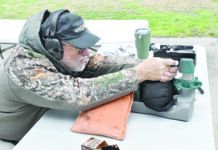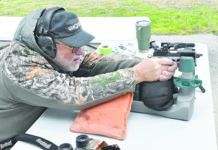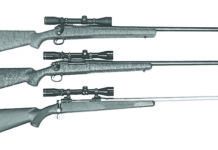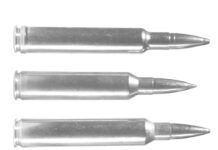Wisconsin to Retired Police Officers: Thanks, but No Thanks
Dozens of Wisconsin police agencies are balking at implementing a federal law that allows qualified retired police officers and sheriffs deputies to carry firearms, even in states such as Wisconsin that have concealed carry bans.
The Wisconsin agencies say they do not want to be held liable for potentially deadly incidents involving their former workers. However, retirees from other states can carry their weapons while in Wisconsin.
The federal law, which took effect in January, allows retired officers who served for more than 15 years to carry a weapon as long as they have identification from their former agency and documents certifying they have met the training standards for the firearm.
The agency or the state must issue those credentials, and theres a controversy over how to implement the law. The state attorney general, a Democrat, has recommended a change in state law that would set mandatory statewide training standards for retirees. Republican lawmakers said no state law is needed.
Police agencies have had little problem implementing the law for current officers, who already must have firearms training.
Michael Weissenberger, president of the Wisconsin Sheriffs and Deputy Sheriffs Association, acknowledged theres a lot of confusion across the state. there are no guidelines, said Weissenberger.
Our Take: We recommend that retired police denied a chance to carry weapons by their former Wisconsin agencies should contact lawyers to see what their options are. They are being denied their right to carry.
———-

Sigarms Names Cohen as President, CEO
Ron J. Cohen, 43, of Irvington, New York, has been named president and chief executive officer of Sigarms. Previously, Cohen was COO of the company, and prior to that was general manager of Kimber Manufacturing.
Born in the USA, Cohen is a graduate engineer from the Technion, in Haifa, Israel, and served as a combat field commander in the Israeli Army.
Our Take: It never hurts to have a former soldier running an arms manufacturer.
———-
Illinois House OKs Bill
In May, the Illinois House easily approved a bill to destroy a state gun sale database. However, if approved, it faces a likely veto from Gov. Blagojevich.
Blagojevich has said the bill, which requires final approval in the Senate, where it already passed in a similar form, is vital to law enforcements ability to solve gun crimes in Illinois.
The State Police database contains 2.1 million gun transactions. The bill, which passed 69-42, was part of a larger package that also would require firearm buyers at gun shows to undergo background checks.
Elsewhere in the state, anti-gun extremists from Chicago have unsuccessfully attacked gun shows in one bill, SB 546, but another, SB 1333, has surfaced. In the House, HB 1098 contains language that would ban .50-caliber rifles, and HB 2414 would ban certain semi-automatic rifles and shotguns, as well as .50-caliber rifles.
Our Take: The database smacks of Big Brother, and in an anti-gun state like Illinois, it offers police too big a temptation to harass law-abiding citizens. Head counts show that even if the governor vetoes the bill, there may be enough votes to sustain an override of the veto.
———-
Should D.C.s Gun Laws Be Repealed?
Just consider a few statistics: Five years before the D.C. Council banned nearly all firearms in 1976, the Districts murder rate fell from 37 to 27 per 100,000 people. In the five years after 1976, the murder rate rose to 35 per 100,000 people. Between 1976 and 1991, the D.C. homicide rate rose 200 percent. The national homicide rate during the same 15-year period rose just 12 percent.
Our Take: According to the FBI, the District has the highest violent crime rate of any city over 500,000 people. Its homicide rate is eight times higher than the rest of the country and four times higher than similarly sized Ft. Worth, Texas. Weve been to both Washington, D.C., and Fort Worth recently. We felt much safer in Fort Worth – as borne out by these stats.


